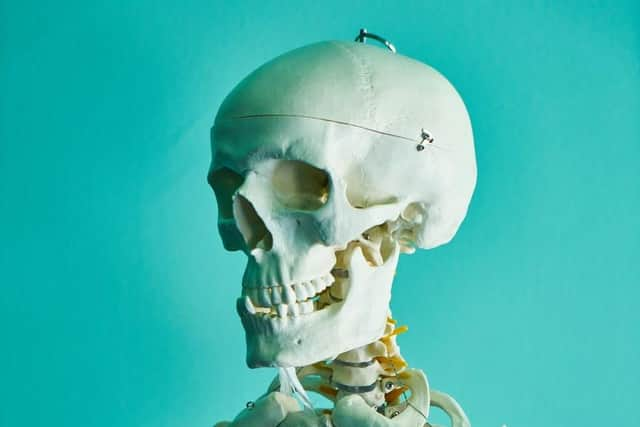We’ll all die one day, so let’s be prepared – Professor Scott Murray


Covid-19 has propelled many of us there abruptly and prematurely. But as pandemic-related deaths decline, dying will once again take longer, and few of us are ready to die well.
Numerous studies show that understanding the likely course of an illness is key in allowing individuals to die according to their own terms and wishes, and to avoid treatments that may not benefit them.
Advertisement
Hide AdAdvertisement
Hide AdSo, how do people die nowadays? It is rarely realistically portrayed in the media or discussed in public. We tend to see death as a dramatic tool to initiate a TV show plot twist, or a tragic and sudden announcement in the paper.
However, studies reveal that very few people now die of a sudden illness such as a stroke. Our research group has undertaken broad thematic analyses with over 1,000 people in their last year of life in Scotland, involving social scientists, psychologists and theologians.
The findings suggested that dying is a 4-D experience, with typical physical, social, psychological and existential components, depending on the illness trajectory.
We found that people with progressive cancer, although often quite healthy physically at diagnosis, typically had acute anxiety and existential distress at four times: around coming to the diagnosis, after initial treatment, as the illness progressed, and in the final days.
In contrast, people with advanced lung, heart or liver failure tended to have intermittent episodes of acute physical deterioration, associated with social and psychological distress, and sudden death could occur during one of these episodes.
People with frailty or a progressive neurological disease typically experienced a gradual physical decline, but worries, loss of dignity and social issues were often harbingers of death.
Thus, we must consider differences in the way we die to effectively plan ahead and live our last days according to our wishes. If we hope against hope for a cure, we could receive treatment of doubtful benefit, which may harm us and can even shorten our life.
We will also be less likely to receive comprehensive care that prevents suffering and brings comfort and dignity – nowadays called palliative care – tragically missing out on the opportunity to influence and personalise our own dying.
Advertisement
Hide AdAdvertisement
Hide AdLikewise, if talk of dying is always considered a negative, we lose a great opportunity to get actively involved in planning what we want, and to bring our own personal beliefs and resources to the table.
General practitioners are now trained to have “anticipatory care planning” conversations with patients to explain, discuss and document preferred treatment options when an illness is life-threatening. Your “prognosis” is not simply how many weeks or months you have left to live, it is understanding the likely series of events, to plan ahead.
So, if the day should come when death taps you on the shoulder, boldly seek to understand what that journey may entail and plan for that final frontier, and then get on with living life to the full in the meantime!
Scott Murray MBE is emeritus professor of palliative care in the community at Edinburgh University, and a fellow of The RSE. The RSE is Scotland's National Academy, which brings the greatest minds together to contribute to the social, cultural and economic well-being of Scotland.
A message from the Editor:
Thank you for reading this article. We're more reliant on your support than ever as the shift in consumer habits brought about by coronavirus impacts our advertisers.
If you haven't already, please consider supporting our trusted, fact-checked journalism by taking out a digital subscription.
Comments
Want to join the conversation? Please or to comment on this article.
